Fats, Oils, and Grease (FOG) Program
What is FOG?
FOG refers to a category of substances that commonly accumulate in plumbing systems, particularly in kitchen sinks and drains. FOG include cooking oils, animal fats, butter, margarine, lard, grease, dairy products, salad dressing, etc.
Examples
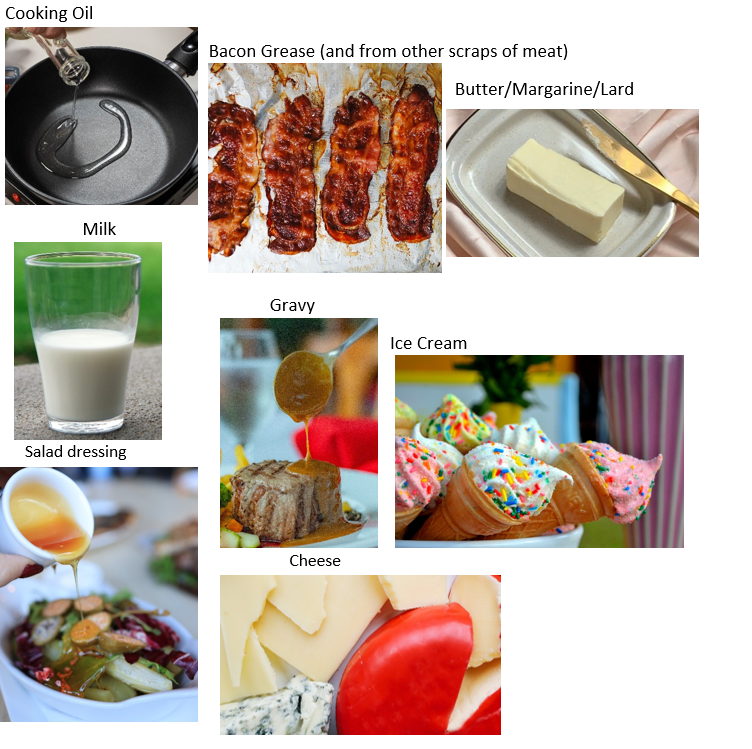
Why is the program important?
When fats, oils, and grease are dumped down the drain, they form into large, thick grease balls that clog pipes. Clogged pipes can result in sewer backups and spills, create environmental problems, cause traffic tie-ups or even flood homes and businesses. Commercial food-handling facilities contribute greatly to FOG buildup in sewer lines because of the amount of grease used in cooking and other food prep work. Working to prevent sewer backups from FOG blockages saves us all money.
The objectives of the program are:
To educate persons, both residential and commercial, about the dangers of improper disposal of FOGs (and other solids as well!) into our sewer system
To work collaboratively with all parties involved to ensure that we minimize FOGs in our sewer system
How do FOGs cause blockages?
Sewer Blockage Formation
The start of a blocked pipe begins when grease and solids collect on the top and sides of the pipe interior.
The build-up increases over time when grease and debris are washed down the drain.
Excessive accumulation will restrict the flow of wastewater and can result in a sanitary sewer overflow.
Below are actual photos of Grand Island, Nebraska's sewers with FOG build-up!
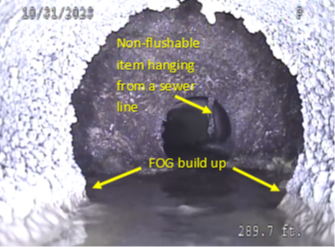
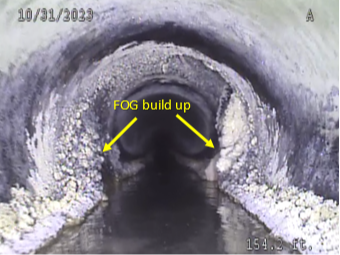
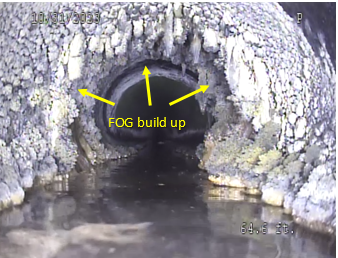
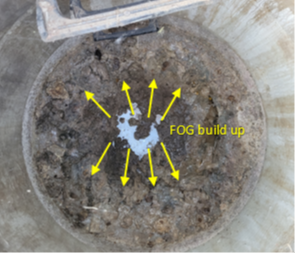
Who does FOG affect?
The City – Increased sewer backups caused by FOGs demand more City dollars to clear sewer lines and make costly repairs. Over time, this can lead to an increase in sewer use fees.
Businesses – Food service establishments (FSEs) especially can be negatively impacted by FOGs. As the plumbing begins to get clogged, bits of food particulates are trapped. Smells begin to develop and pests begin to gather. This can lead to potential health hazards to staff and patrons alike. Expect a loss of revenue due to closure orders from health violations, potential fines from non-compliance, and costly plumbing repair bills.
Residences – Similar to businesses, plumbing clogged with food particles begins to smell and pests can become and issue. Because the clogged pipe is the property of the home-owner, all costly repairs will be at the owner's expense!
The Environment – Clogged sewer systems can lead to sanitary sewer overflows. These overflows will put raw sewage in our streets, stormwater system, and consequently into our lakes and rivers. This is dangerous to our aquatic life and recreational users. If FOGs clog our stormwater system, the next rain would flood our streets and our homes.
By taking simple steps to properly dispose of grease, you can help prevent clogs and backups in your plumbing system, saving you time, money, and potential headaches down the line.
